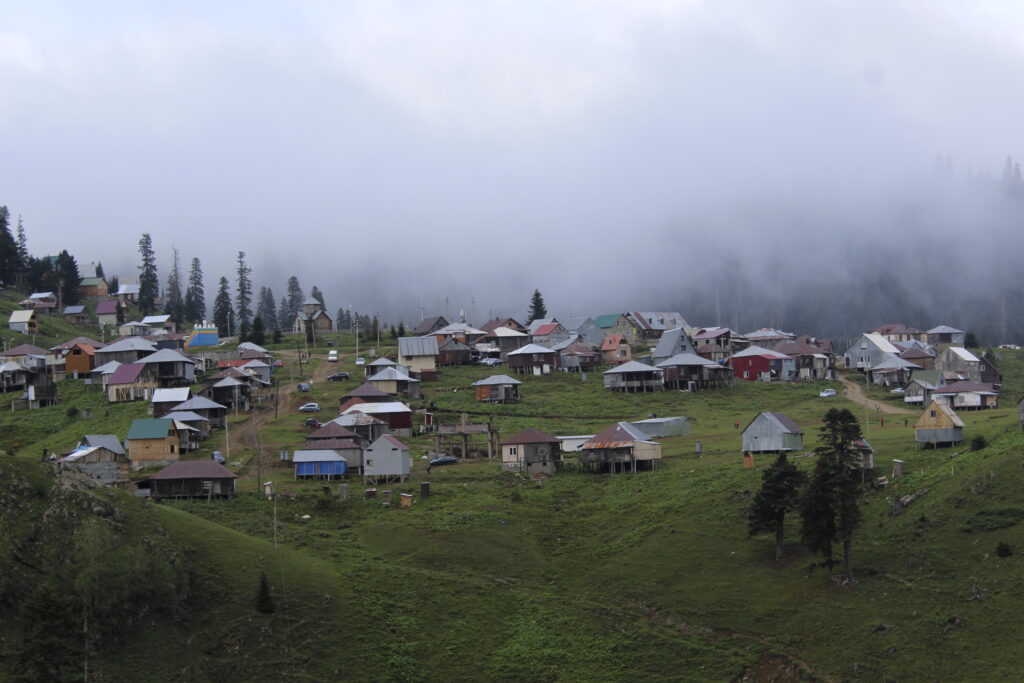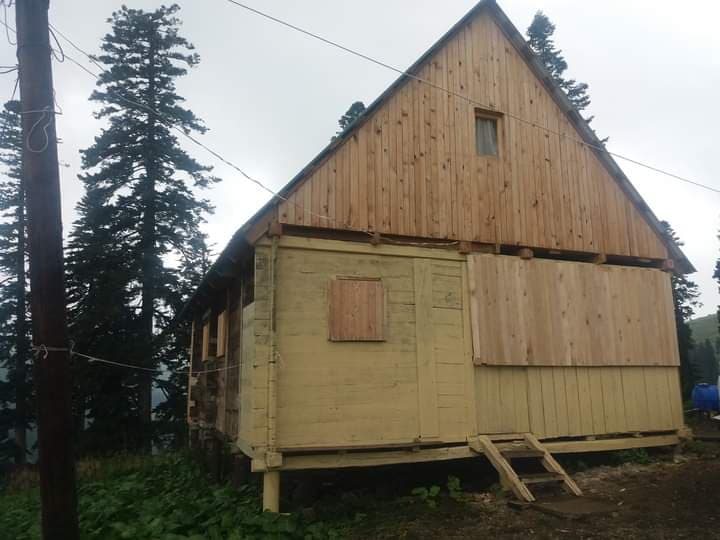Small business for nature’s benefit: how hotel in Georgia is cutting harmful waste
How hotel in Georgia protects nature

In 2024, the Tom’s Cabin guesthouse in Georgia completely stopped using single-use plastic products. This year, the hotel aims to cut down on other harmful waste as well.
Our photo report explores Thomas’s Cabin and its commitment to environmental sustainability.
——
The Thomas’s Cabin hotel is located in Bakhmaro, Guria. It operates seasonally from June to September.
The residents of Buknari village inherited wooden cabins from their ancestors. Thomas’s Cabin was once a simple wooden structure, until its owners transformed it into a guesthouse.
Located at 2,050 meters above sea level, Bakhmaro stands out from other Georgian resorts with its unique blend of sea and mountain air, evergreen forests of fir and pine, and breathtaking sunrises and sunsets.

Eka Devidze, manager of Thomas’s Cabin, adds that in addition to its natural beauty, Bakhmaro is known for its unique local festivals, traditional horse races, and rural customs.
According to her, it is this cultural heritage that sets Bakhmaro apart from other holiday destinations. Moreover, Bakhmaro is also a health resort.
Thomas’s Cabin is a well-equipped two-story wooden cottage featuring three bedrooms, a kitchen, and a bathroom on the first floor, as well as a large four-person bedroom and a hall on the second floor.
Eka told JAMNews that near Thomas’s Cabin, there is an agrotourism farm where visitors can enjoy hiking and agricultural tours. Tourists can even participate in vegetable farming and taste the produce they harvest.
Thomas’s Cabin’s eco-friendly policy
At Thomas’s Cabin, environmental care is a top priority. “It’s impossible to love Bakhmaro without thinking about nature,” Eka explains.
For this reason, the owners of the small family-run guesthouse have made waste reduction their main focus. Locals in Bakhmaro know firsthand how much waste accumulates at seasonal resorts, where visitors frequently bring single-use plastic items.
Since last spring, the hotel has been actively working to reduce waste. It joined a campaign initiated by CENN (Caucasus Environmental NGO Network) with support from the UN Development Programme and Norway, participating in various eco-trainings alongside other organizations. One of the training topics focused on reducing plastic waste in hotels.
The training brought together representatives from both large hotel chains and small resort lodges. Eka recalls that during the sessions, an international expert demonstrated practical ways to reduce plastic waste in the hospitality industry.
Following the training, Thomas’s Cabin replaced disposable cups, plates, cutlery, and other plastic items with reusable glass and wooden alternatives. They also switched to glass water bottles instead of plastic ones.
“We used to go through about 50 single-use plastic plates, cups, utensils, and spoons per day. Now, they’ve been completely eliminated,” Eka says.
Within a small hotel setting, Eka has managed to reduce single-use plastic waste by approximately 250 items per day—which amounts to 7,500 per month and 30,000 during peak season.
Within a small hotel setting, Eka has managed to reduce the amount of single-use plastic waste in the environment by approximately 250 items per day. This equates to around 7,500 items per month and 30,000 during the hotel’s peak season.
If we assume that a single-use plastic utensil is about 18 cm long, then a total of 30,000 such items would stretch 5.4 km.
That’s about half the height of Mount Kazbek. This figure is also comparable to the distance from Freedom Square to Tbilisi’s Dinamo Arena. Can you imagine a continuous strip of plastic forks, knives, and spoons covering Rustaveli Avenue?
Eka says that as this year’s tourist season approaches, Thomas’s Cabin is focusing on improving waste sorting and recycling. The guesthouse’s main goal now is to find waste disposal companies near Bakhmaro.
In the future, the owners of Thomas’s Cabin also plan to start producing homemade jams. To prevent an increase in harmful waste, they intend to use eco-friendly packaging.
To make environmental responsibility a lasting practice, the hotel administration aims to launch an eco-awareness campaign. As part of this, they plan to organize a series of training sessions for hotel staff.
How hotel in Georgia protects nature




















